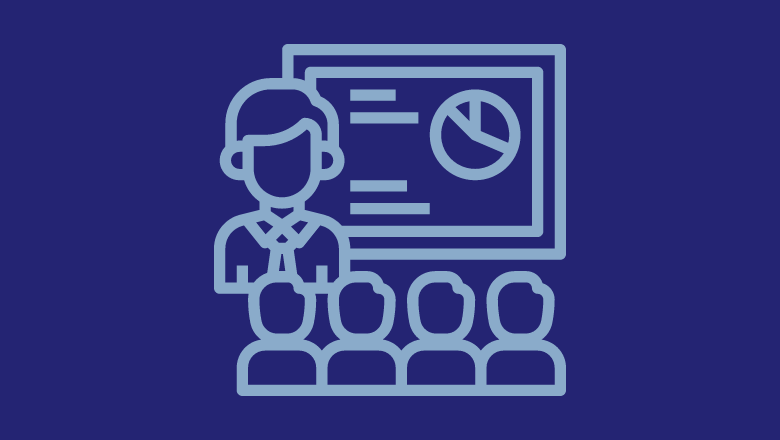Menu
February 20, 2023

As remote work becomes increasingly prevalent, companies face the challenge of onboarding remote software developers effectively. Onboarding is crucial for building a positive remote work culture, which is essential for the well-being and productivity of remote software developers.
This article will explore best practices and strategies for onboarding remote software developers and fostering a successful virtual team.
Table of Contents
Toggle
Preparing for onboarding is crucial to ensure a smooth and successful process. Defining job roles and responsibilities, creating an onboarding plan, setting up necessary communication tools, and setting expectations and goals are essential steps before beginning the onboarding process.
They need clear job roles and responsibilities to know what to expect from their employers. This helps to ensure that remote software developers are aligned with company objectives and can work efficiently within the team.
Creating an onboarding plan helps to ensure that the onboarding process is structured, comprehensive, and effective. The plan should include the following:
Effective communication is critical to remote work success. Setting up necessary communication tools, such as video conferencing software, chat platforms, and project management tools ensures that remote software developers can communicate effectively with the team.
Defining expectations and goals helps remote software developers understand what is expected of them. It also helps to align the team with the company’s objectives and ensure everyone is working towards the same goals.

The onboarding process is an opportunity to introduce the company culture and values, provide necessary resources and training, assign mentors or buddies, and establish communication guidelines.
Introducing the company culture and values: Introducing the company culture and values is essential to onboarding remote software developers. It helps remote software developers feel connected to the company and understand its vision and mission.
Providing essential resources helps remote software developers become familiar with the software development process and the tools and resources they will use. This includes information on coding standards, development methodologies, and other resources essential for remote software developers to work efficiently within the team.
Assigning mentors or buddies helps to provide support and guidance to remote software developers.
Mentors or buddies can help remote software developers get up to speed on the software development process, answer any questions, and provide feedback on their work.
Establishing communication guidelines helps ensure that remote software developers communicate effectively with the team.
This includes guidelines on how often to communicate, which communication tools to use, and how to provide feedback.

Virtual team building is an essential component of remote work culture. Organizing virtual team-building activities, fostering community and teamwork, and encouraging social interaction are all important aspects of building a cohesive virtual team.
Organizing virtual team building activities: Organizing virtual team building activities helps to foster a sense of community and teamwork. This includes virtual coffee breaks, team trivia games, and online happy hours.
It is vital to foster community and teamwork among remote software developers.
This includes encouraging collaboration and communication, recognizing achievements, and promoting team bonding.
Encouraging social interaction helps to prevent isolation and burnout among remote software developers.
This includes encouraging team members to share personal interests and hobbies, organizing virtual lunches or dinners, and promoting non-work related discussions.

Building trust is crucial for remote work success. Remote software developers must trust that their team members and managers are reliable and competent.
Building trust involves open and honest communication, respecting boundaries and work-life balance, and establishing accountability.
Open and honest communication is essential for building trust among remote software developers.
Encouraging transparent and regular communication can help remote software developers feel more connected to the team and their colleagues.
Respecting boundaries and work-life balance is essential for ensuring that remote software developers have a healthy work-life balance.
Encouraging remote software developers to take breaks and time off, and respecting their time, can help build trust and foster a positive work culture.
Establishing accountability helps ensure that remote software developers are responsible for their work and their contributions are recognized.
This can include setting clear expectations and deadlines, providing feedback on work, and recognizing achievements.
Onboarding remote software developers require a comprehensive and structured approach.
Preparing for onboarding, establishing effective communication and team building, and building trust are all essential aspects of a successful onboarding process.
By following these best practices, companies can build a positive remote work culture, foster a successful virtual team, and support the well-being and productivity of their remote software developers.

A: The key challenges in onboarding remote software developers include ensuring effective communication, establishing team cohesion and collaboration, managing different time zones, and providing the necessary tools and resources.
A: Providing clear guidelines, setting expectations, and providing feedback on work can help remote software developers feel supported and motivated.
Additionally, offering opportunities for virtual team building and social interaction can foster a positive work culture.
A: Communicating the company’s mission and values, providing clear expectations and guidelines, and offering opportunities for feedback and discussion can help remote software developers understand and align with the company’s goals and values.
A: Establishing a clear onboarding timeline is essential, considering different time zones and availability. Recorded training sessions and asynchronous communication channels can also help accommodate different time zones.
A: Providing access to necessary software and technology, offering training and documentation, and establishing clear communication channels are all essential tools and resources for onboarding remote software developers.
A: Offering opportunities for virtual team building and social interaction, assigning mentors or buddies, and encouraging collaboration and communication can help remote software developers feel integrated and connected to the team and company culture.
A: Measuring the success of the onboarding process can include assessing retention rates, productivity levels, and feedback from remote software developers.
Gathering feedback and continuously iterating on the onboarding process can also improve its effectiveness over time.
A: Providing support and resources for time management and productivity, such as time-tracking tools or productivity coaching, can help remote software developers improve their performance.
Additionally, setting clear expectations and deadlines and providing feedback on work can help improve accountability.
A: Providing ongoing training and professional development opportunities, such as webinars or conferences, can help keep remote software developers informed and engaged with the latest technology and industry developments.
A: Providing the necessary hardware and equipment, such as laptops or monitors, and ensuring they are correctly set up and maintained can help remote software developers work effectively and efficiently.
A: Providing language training or communication coaching can help remote software developers improve their language and communication skills.
Additionally, encouraging clear and concise communication and providing tools for translation or interpretation can help overcome language barriers.
A: Providing clear guidelines and training on the company’s security protocols and policies, such as using VPNs or two-factor authentication, can help ensure that remote software developers are properly integrated into the company’s security practices.
A: Providing training or resources on cultural differences and working styles, and encouraging open and respectful communication, can help remote software developers work effectively with colleagues from different cultures or with different working types.
A: Regularly communicating the company’s mission and values, providing opportunities for virtual team building and social interaction, and ensuring that remote software developers feel integrated into the team can help maintain a sense of company culture and values.

A: Communicating the company’s overall business strategy and goals to remote software developers, and providing clear expectations and guidelines, can help ensure they align with the company’s vision and mission.
A: Providing clear expectations, offering necessary tools and resources, setting goals and deadlines, and offering support and feedback can all help remote software developers stay productive and efficient while working remotely.
A: Regularly communicating the company’s mission and values, providing opportunities for virtual team building and social interaction, and ensuring that remote software developers feel integrated into the team can help maintain a sense of company culture and values.
A: Providing ongoing training and professional development opportunities, such as webinars or conferences, can help keep remote software developers informed and engaged with the latest technology and industry developments.
A: Establishing clear timelines, providing recorded training sessions and asynchronous communication channels, and gathering feedback from remote software developers can help streamline and improve the onboarding process.
A: Measuring the success of the onboarding process can include assessing retention rates, productivity levels, and feedback from remote software developers.
Gathering input and continuously iterating on the onboarding process can also improve its effectiveness.
A: Communicating the company’s vision and mission regularly, providing opportunities for remote software developers to engage with leadership and share feedback, and recognizing their contributions and achievements can help remote software developers feel connected to the company’s vision and mission.
A: Providing clear guidelines and training on legal and regulatory requirements, and ensuring that remote software developers have access to necessary resources and support, can help ensure compliance and avoid potential legal issues.
A: Providing clear communication channels and expectations, allowing for flexible scheduling and accommodating different time zones, and establishing protocols for communication and decision-making can help ensure effective collaboration with remote software developers in different time zones.
A: Providing clear guidelines and expectations, encouraging open communication and conflict resolution, and offering support and resources can help address conflicts and challenges when working with remote software developers.
A: Offering the same benefits and resources, such as healthcare and 401k plans, to remote software developers as in-office employees can help ensure they are adequately supported and valued as part of the team.
A: By offering opportunities for virtual team building, such as social events or community service projects, remote software developers can feel more connected to the company culture and values.
Furthermore, encouraging them to share their perspectives and experiences can help to deepen this connection and foster greater engagement.
A: Providing training or resources on communication styles and preferences, encouraging clear and concise communication, and establishing protocols for communication and decision-making can help overcome differences in communication styles and tastes.
A: By creating virtual team projects and individual assignments, remote software developers can balance collaboration and autonomy.
Get your free, personalized remote development team consultation. Schedule your call now.
About the author: Jacob Tenwick
Avid business developer and development manager
Input your search keywords and press Enter.